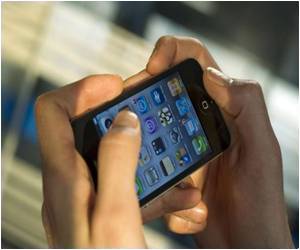Do you feel your phone vibrating and find that no one is calling? It might be Phantom Vibration Syndrome.

PVS is also called 'ringxiety' most probably because this syndrome is not limited to phones in 'vibrate' mode but include ring tones as well. So much so, Phantom Vibration Syndrome has been named the Macquarie Dictionary’s Word for the Year 2012.
Studies are limited in this area since it is a relatively new phenomenon, so scientists are yet to find out what factors may increase the probability of experiencing phantom vibrations or which methods may be effective in dispelling them.
Mobile phones, suggest psychologists, are now recognized as a form of self-expressive identity. The younger generations of mobile phone users personalize their phones to express their identity by decorating their phones and having unique ring-tones.
Secondly, many young people believe use of mobile phones enhances social inclusion by allowing them to remain in contact with friends and peers at all times. They report feeling loved and valued when they receive contact on their mobile phone. Thus, validation from others sort of enhances feelings of self-worth in these people.
Research has shown that people who receive validation from others via their mobile phone become over-involved with their mobile phone in a manner similar to an addictive pattern of behavior.
So, how does it happen? Researchers believe that phantom vibration syndrome may result from a misinterpretation of incoming sensory signals by the brain. 'In order to deal with the overwhelming amount of sensory input, the brain applies filters based on what it expects to find. In the case of phantom vibrations, because the brain is anticipating a call, it misinterprets sensory input'. The actual stimulus for this sensation could be the pressure from clothing, muscle contractions, or other sensory stimuli.
According to neuroscientists, plasticity in the brain is at its peak in the growing and learning individuals. Communication between nerve cells changes in response to brain activity generated by new and repeated experiences, in this case, ringing or vibrating of phones. It is very much like the new mothers who constantly imagine they hear their babies crying. In the same way young people addicted to mobile phones think their phone is vibrating or ringing as their brain becomes conditioned to respond to a phone ring or vibration.
Neurological problem or not, maybe in the near future, when phantom vibration syndrome is better understood, there will be a cure for this condition.
Wait, is that my phone vibrating! Nope.
Source-Medindia











